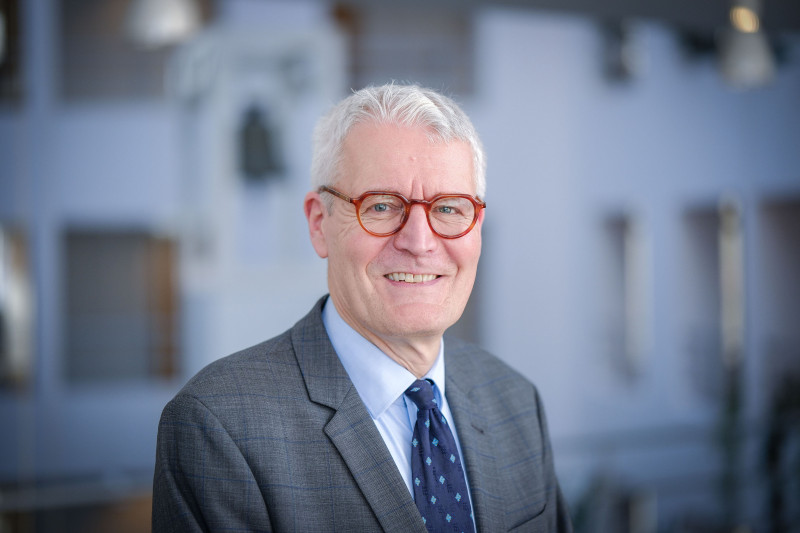
Photo: EKD/Jens Schulze
Feature Article No: 02/24
25 July 2024
Brussels
Rev. Frank-Dieter Fischbach is the new General Secretary of the Conference of European Churches (CEC). He took time to share some reflections on his hopes and aspirations, as well as how he sees CEC’s unique role in the world.
What is your vision in leading CEC?
Rev. Fischbach: First, it is a great honour for me that the Governing Board elected me General Secretary of the Conference of European Churches in March this year. This is a great pleasure for me, but it is certainly also a great challenge. I have already been professionally involved with CEC and have followed the history and development of CEC over the years. From the very beginning, I have always been drawn to CEC as a bridge builder. When CEC was founded, the primary aim was to maintain peace between East and West in Europe, through the Iron Curtain, to stay in contact, to make peace possible. And I have the impression that this vision is very topical again today: with Russia's war against Ukraine and the associated geopolitical consequences; in the withdrawal of some governments from a commitment to the European integration process, back to nationalisms that we thought had been overcome in Europe; and in the polarization in our societies, which is associated with a great deal of aggression, anger, hatred and defamation.
These are just a few examples: Building bridges is once again the task of our churches today.
As a European ecumenical fellowship how do you see the unique role of CEC?
Rev. Fischbach: My starting point is that this was worked out very well in the fundamental document "Call & Witness" for CEC on the way to the General Assembly in Tallinn. The 114 member churches of CEC come from very different denominations, traditions, regions and contexts in Europe. They have very different histories. But we have heard, learnt and understood together that Christ calls us to unity, to togetherness, to coming together. At the same time, all member churches in Europe—unlike on other continents—are facing the challenge of secularisation. We are looking for answers to this, and we can learn from each other and support each other.
And with the choice of Brussels as the seat of CEC, something else has been added: dialogue with the European institutions, with European politics for the good of Europe, for the good of the people in Europe and beyond. This is an enormous and very promising task for the churches, especially in these difficult times in political Europe. CEC cannot do this alone. We are grateful for the cooperation with organisations with which we are linked in partnership.
What are issues that are of utmost importance to CEC?
Rev. Fischbach: For an international ecumenical organisation, it is always central that member churches can participate and contribute in many ways. I see this as the development of ownership. This means that the member churches experience CEC as their common organisation and they can shape it together.
In addition, the European elections have just taken place: The European Commission is in the process of reorganising itself; the European Parliament is currently being constituted. Which policy areas will be given particular weight? Which persons will be responsible? And how can we as CEC enter into dialogue with them about issues that are important to us for Europe? What topics and European discussions can and do we as CEC want to contribute to?
And unfortunately, the Russian war against Ukraine remains a priority: with Pathways to Peace, CEC is working intensively to understand together what a Christian peace ethic is in these times, and how CEC can help build bridges between churches and societies, and stand in solidarity with the churches and people in Ukraine who are suffering so much from the war.
Finally, as General Secretary, I must add that we of course have limited resources at our disposal and must work with the Governing Board to develop how these can best be utilised.
How do you maintain a sense of hope?
Rev. Fischbach: Of utmost importance in all of this, is that we as churches and Christians bear witness to the trust and hope that God has given us humans in the crucified and risen Christ in the middle of all worries we experience.
